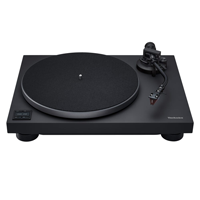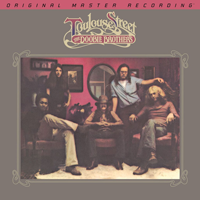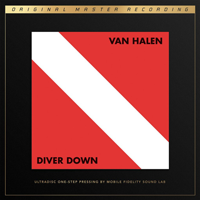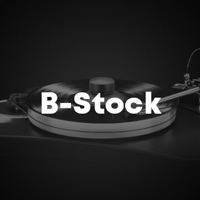Today's guest contributor discusses an album whose depth, range, and length make for ideal for weekend listening – as well as a few related back-catalog suggestions for further exploration. Bob Gendron has been part of the team at Music Direct for more than decade. He is one of the hardest-working, most dedicated, borderline-perfectionist people I've ever had the pleasure of knowing. His music knowledge is massive. He's contributed to the Chicago Tribune for nearly two decades, and has been published in almost every conceivable format – books, magazines, newspapers, and online. My own writing has been greatly elevated through Bob's suggestions and editing.
Stay safe, and have an enjoyable weekend, everyone.
Today's Special Guest Contribution: Drive-By Truckers It's Great to Be Alive!
By Bob Gendron, Music Direct Director of Communications/Music Critic/Editor/Chionophile
"Living in fear is just another way of dying before your time." Drive-By Truckers co-founder Mike Cooley first sung those words nearly two decades ago on "Shut Up and Get on the Plane," a frenzied adrenaline rush that on the surface is about conquering personal terrors and, on a deeper level, relates to recognizing one's powerlessness over fate. In these uncertain times, the courageous sentiment seemingly rings truer than ever – a defiant credo worth embracing as a defense mechanism, statement of hope, and reminder that perseverance conquers all. No strangers to such themes or intrepid actions, the Truckers have championed the plight of regular folk for the past 25 years. Their songs chronicle the lives of the very sort of ordinary individuals who are just like the custodial, sanitation, emergency, health-care, warehouse, delivery, food, and grocery workers finally getting recognized – if not yet receiving the voice they deserve – on a national level.
Formed in 1996 by Cooley and fellow songwriter/guitarist/vocalist Patterson Hood, the Truckers steadily built a reputation on the merits of tireless touring, feisty concerts, and word-of-mouth praise. Along the way, they quietly amassed a back catalog of expressive, diverse albums on par with those of any group to set foot in a recording studio in recent memory. Music fans quick to bemoan the state of contemporary rock n' roll need only look to any number of the ensemble's recordings – 2001's conceptual Southern Rock Opera, 2003's consequence-driven Decoration Day, and 2016's of-the-moment American Band serve as fine starting points – to glimpse the band's deep-seated ethos, intelligence, creativity, and tenacity. The group's vitality continues in bold, irrepressible, political fashion on the recently released The Unraveling.
Akin to all meaningful relationships, the Truckers' history also involves prevailing over challenges and breakups. Most famously, Jason Isbell, who joined the band at the age of 22, just as the band began to gain recognition outside of its native Georgia, departed in early 2007 to embark on a remarkable solo career that continues to blossom. Others, all lesser recognized, have come and gone, with Cooley, Hood, and drummer Brad Morgan, who began his stint in 1999, enduring as the mainstays. The latter trio – along with multi-instrumentalist Jay Gonzalez and bassist Matt Patton – currently comprises a lineup that counts nearly a decade of experience playing together.
Early Truckers appear looser, more unhinged, and slapdash (see 1999's free-for-all live set, Alabama Ass Whuppin'), and their mid-period era comes across as more eclectic if not sprawling (2008's Brighter Than Creation's Dark). Yet they've never sounded as self-assured, tight-knit, raw, urgent, and accomplished as they do now. Evidence of such chemistry, purpose, and commonality surfaces on practically every note of It's Great to Be Alive!, a career-spanning overview recorded live over a three-night stand at the Fillmore and issued on ATO in 2015 to commemorate the Truckers' 20th anniversary.
The album's title stems from a lyric in "A World of Hurt," which contains several other clarity-providing platitudes, including "‘To love is to feel pain'/There ain't no way around it" and "Remember, it ain't too late to take a deep breath/And throw yourself into it with everything you got." The Hood-penned tune is one of 35 originals here – songs that touch on normal people facing everyday struggles and seeking the faith, stamina, guidance, and solutions to survive, and, when possible, triumph over adversity, misfortune, and mistakes. Within these landscapes, compassion, empathy, spirituality, pride, and sensitivity coexist with anger, frustration, resentment, pain, and revenge.
Farmers who lose generations-owned land to callous bankers ("Sinkhole"), laborers who lose blue-collar jobs to cost-cutting measures and wives to cancer ("Putting People on the Moon"), police who lose their positions, possessions, and loved ones to mental duress ("Used to Be a Cop"), war veterans who lose everything to lying bureaucrats ("Uncle Frank") – all inhabit the same domain as altruistic strippers ("Birthday Boy"), alimony-paying loafers ("Get Downtown"), superstitious grandmothers ("Box of Spiders"), brooding sons ("Lookout Mountain"), exasperated lovers ("Zip City"), and families dealing with the aftermath of natural disasters ("Tornadoes"). Blurring the divide between fiction and reality, the stories and settings get fleshed out with direct, detail-oriented language reminiscent of a can't-put-down novel.
As compelling, relatable, and evocative as the narratives remain on their own, the Truckers' gutsy performances and musical frameworks transform them into personal dispatches brimming with uncommon purpose, emotion, and intensity. Rooted in Southern traditions and sounds, the band's command of myriad disciplines (greasy boogie, country soul, down-home folk, storefront gospel, raucous hard rock, swampy blues among them) – and its trade-offs between Hood's burly drawl and Cooley's conversational, oft-laconic timbre – further accounts for why, no matter the circumstances, the songs refuse to succumb to defeat or depression. On most occasions, the music conquers, celebrates, uplifts, and/or provides redemption.
Just listen to the Bigfoot stomp of "Where the Devil Don't Stay," take-stock pledge and warm jangle of "The Righteous Path," aw-shucks swagger of "Three Dimes Down," reassuring vows of the tender "Mercy Buckets," golden-hued, memory-jogging ambience of "First Air of Autumn," rippled undertow of the unapologetic "Marry Me," or declarative resolve of the hell-raising "Hell No, I Ain't Happy." One can practically take shelter amidst the booming rhythms, gritty harmonies, growling guitar solos, amplifier-cranked volumes, and fervent vocal deliveries. Strength, toughness, spunk, and determination abound. Meanness and cussing, too, when necessary.
Like nearly all Truckers albums, It's Great to Be Alive! is produced by David Barbe and available on vinyl as part of a 5LP/3CD box set – as well as on streaming services. It's worth mentioning that Hood is a professed analog fanatic and that his father, David, co-founded Muscle Shoals Sound Studio and played bass on albums by everyone from Aretha Franklin and Paul Simon to Bob Seger and Albert King. Suffice it to say the Truckers take production more seriously than most. While the LPs may not meet the most exacting audiophile parameters, the surfaces are clean and quiet; the music conveys un-fussed-over vibrancy, fullness, and punch that evoke the energy of a rock concert; the instruments enjoy ample breathing room and space; and notes distinctively decay, bleed, and bloom.
Most importantly, the vinyl invites you to heed the wise advice of the late Warren Zevon: Turn those speakers up full blast, play it all night long.
10th Apr 2020




































